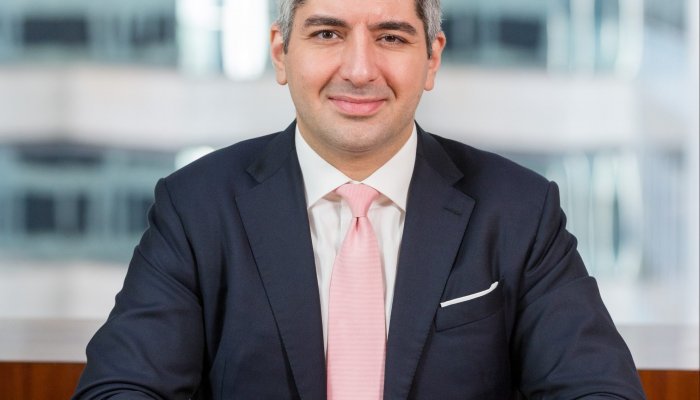David Rosa has been based in Hong Kong for 17 years and is typical of the players in the city’s fintech ecosystem. He began his career in the traditional banking world, working for Citi in the bank’s New York, London and Hong Kong offices before co-founding the Asian arm of Integral Capital Management, which he sold in 2014 to focus on fintech.
“Fintech is extremely exciting in terms of outlook. Every single facet of finance technology is playing an increasingly big role. And in terms of macro dynamics – integrating with the Greater Bay Area – nowhere else in the world do you have a New York, Silicon Valley and Vegas all in one,” says Rosa, co-founder of Neat, billed as Asia’s alternative to a traditional bank account for start-ups.
His analogy matches the US cities with three cities in the GBA: New York is Hong Kong, a key financial centre; Silicon Valley is Shenzhen, a major tech hub; and Las Vegas is Macau, a casino mecca. GBA has been a buzzword in the business community since Chinese President Xi Jinping first mooted the idea in a 2016 policy paper. It’s an ambitious initiative that links the two special administrative regions, Hong Kong and Macau, with nine mainland cities within a two-hour radius of Hong Kong, namely Guangzhou, Shenzhen, Zhuhai, Foshan, Huizhou, Dongguan, Zhongshan, Jiangmen and Zhaoqing. It is supported by new infrastructure, chiefly the high-speed rail link and the Hong Kong-Zhuhai-Macau Bridge which both opened towards the end of last year.
Virtual banking
Rosa’s fintech start-up, Neat, aims to make it easier for small companies to set up bank accounts by removing the obstacles they usually face, such as paperwork, bureaucracy and long waiting times. The biggest obstacle so far has been the cost of office rent – Hong Kong is one of the most expensive cities in the world for commercial real estate – but he is excited by the pace of change and the innovations in this sphere.
...virtual banks are where we are seeing the most innovation.
“Digital banks are very interesting, they are a game changer because you are moving away from physical banks,” says Rosa.
Digital banks – or “virtual banks” as they are often known in Asia – are one of the most exciting developments in financial services, says Henri Arslanian, the PwC FinTech & Crypto Leader for Asia and Chairman of the FinTech Association of Hong Kong. Among the first of this new breed of bank was Revolut, in the UK. It offers a secure, mobile-based current account that allows users to hold, exchange and transfer without fees in 24 different currencies. Founded in 2015, it now has more than three million users.
User-friendly and designed with the customer in mind, virtual banks are where we are seeing the most innovation.
“If you are trying to sell a solution to a traditional bank it’s very difficult to put new technology on top, but with virtual banks it’s a greenfield, there’s no legacy, a lot more flexibility. A lot of virtual banks are nimble and can make decisions faster,” says Arslanian.
A clear direction
Hong Kong made clear its fintech ambitions last year when the financial regulator, the Hong Kong Monetary Authority (HKMA), released its guidelines for virtual banks. The first batch of virtual bank licenses was released at the end of March 2019. The new virtual banks are being launched from a mix of both existing banks and tech firms.
“In Hong Kong, Standard Chartered set up a whole new team to launch a virtual bank. Banks are future proofing themselves by having this new baby,” says Arslanian.
The interest of traditional banks in fintech is relatively new. When Musheer Ahmed, General Manager of the FinTech Association of Hong Kong, got involved with fintech four years ago he says banks were not paying it much attention. They have since done a 180.
“In the last two years, banks have evolved from looking at fintech as competition to collaboration. Fintech isn’t about competing, it’s about developing technologies. There are more digital and innovation teams being set up by the banks,” says Ahmed.
He points to innovation in a number of key areas: blockchain, micro-credit and micro-insurance and artificial intelligence.
“AI – everything from facial recognition to a multitude of things, logging into accounts – is become very significant for fintech,” says Ahmed.
Growing talent
Professor K. Y. Tam, Dean of Business and Management at Hong Kong University of Science and Technology (HKUST), credits Hong Kong’s recent fintech success to the new government initiatives. The HKMA has also launched the Fintech Career Accelerator Scheme (FCAS) to nurture young talent to meet the growing needs of fintech in the city.
“The HKMA worked with the eight public universities to come up with the programme, sending interns to work in participating banks and financial institutions. They are already on the second batch of students,” says Professor Tam.
“The banks are competing with the start-ups for talent.”
Such internships will go some way towards addressing what many see as one of the major obstacles for fintech in the region – the acute shortage of talent.
“When I meet bankers they always ask if we have any students or graduates that they can hire. The banks are competing with the start-ups for talent,” says Professor Tam.
Many of the local universities have launched fintech programmes, all of which have been well received. In September, HKUST will launch a Master's programme in Fintech.
“Fintech is a priority of the Business School. With the Greater Bay Area, the market will expand beyond the 7.4 million people in Hong Kong to the 70 million in the GBA, so there will be even more opportunities for fintech companies,” says Professor Tam.
Asia
Looking to the future of fintech in Asia more broadly, Ahmed expects the key business-to-consumer trends will evolve around the notion of leap-frogging and will be mobile driven as smartphones become even more affordable. As for business-to-business trends, he expects to see a continued transformation of banking and insurance firms.
“Asia has a dynamic mix of economies from large to small. Some are developed like Japan and others are emerging, such as Cambodia and Laos. I expect to see a lot of mobile-driven changes in the future,” says Ahmed, explaining that mobile platforms have the ability to cut across the differing developmental stages of the swathe of Asian economies.
Professor Tam expects to see some consolidation in terms of payment in the future and draws attention to the fact that fintech is built on software, which can easily be scaled up at little cost.
“Software is winner-takes-all. Once you can scale up a service across national boundaries it will come down to a few standards which probably will apply to financial services like payment,” says Professor Tam.
He also predicts more collaboration in terms of cybersecurity across the region and the sharing of data. Currently, many anti-money laundering systems and frameworks are restricted at the country level, which means that if there is a pattern of transactions across multiple countries it can be difficult to spot.
“With fintech improving, we can expect to see collaboration between different governments in anti-money laundering,” says Professor Tam.
There are certainly obstacles to be overcome – not least of all a shortage of tech talent and the difficulty for start-ups in opening bank accounts – but overall the future looks promising.
“I'm very optimistic for fintech in Hong Kong, in large part to do with the Greater Bay Area, the strength of the ecosystem, virtual banks and the clarity of the regulators,” says Arslanian.
TOP FINTECH TRENDS IN 2019 FROM HENRI ARSLANIAN
Virtual banks
“The virtual banks or digital banks are a big trend to watch for the year ahead. Hong Kong regulators are about to approve, for the first time, new virtual banks that could include digital-only offerings launched not only by traditional banks but also by the large tech firms and fintech firms. This could change the retail and SME banking landscape across Asia.”
Crypto grows up
“In the early days, crypto was two guys in a garage. The industry has changed a lot in recent years to become substantially more institutionalised. We have seen banks such as Goldman Sachs announce their crypto plans – there is now a broader maturity on the crypto ecosystem. This has been a trend over the last two years, and we expect to see more over the coming months.”
Regulatory clarity
“Global regulatory collaboration is increasing and improving every year. The Global Financial Innovation Network was launched in February and aims to include regulators globally, from Canada to Bahrain and Singapore to Australia. Not only does it provide regulatory co-operation and cross-border engagement, it also allows fintech start-ups working in one jurisdiction to test in other jurisdictions, they are calling it ‘cross-border trials’.”
WHAT FINTECH MEANS FOR AFRICA
Musheer Ahmed: “South Africa is the leading economy in Africa. Hong Kong has this expertise in financial services – there is a lot of scope for collaboration, a lot of things Hong Kong could launch in South Africa, with South Africa as the gateway to other African firms.”
Professor Tam: “We’d like to explore more collaboration opportunities in South Africa. The rest of the world expects Africa to be the next China or India. South Africa is well positioned in the development of the African continent – in terms of connections with the rest of the world, so it’s natural that innovation will start from South Africa. Perhaps the South African Consulate General could approach Invest Hong Kong, maybe some start-ups in South Africa would like to explore some markets in Hong Kong.”
Henri Arslanian: “We need to see this play out in Asia and then can see what benefits it can have for Africa. Where there is no legacy, they could try to use some of this technology. The potential of crypto in Africa is quite big. Think of the remittance space – people paying to send money between different African countries.”









